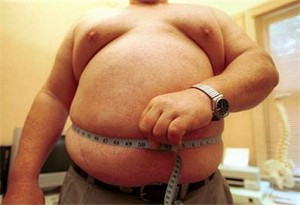Jane Fonda vs Jack Lelane, Vegans vs High Protein diets, Paleo vs Southbeach – who had it right?
Both? Niether? Perhaps they were each onto something, but as the debates rage on as to whether the old adage about exercising to burn more calories than you intake is really the key to weight loss, and more people turn to Primal and Paleo ways of life, we can’t help but wonder… who really has it figured out?
We follow many authors and experts; from Western MDs with a more Eastern point of view, Nutritionists, Personal Trainers and average folks who have transformed their bodies, it seems they all have a personal plan which they swear by. If you’re into Crossfit you probably follow the Paleo way of life. For those looking for a bit more flexibility, it’s common to turn to the Primal Blueprint diet by Mark Sisson.
A group of ND’s and Eastern medicine/personal training enthusiasts we follow as well are the Metabolic Effect guys. They have a very active Facebook page which you can view here, and they tend to promote a balanced way of life consisting of rapid, intense workouts which spark the “Metabollic Effect” or EPOC after-burn. They tend to believe that you will gravitate towards the eating plan which best suits your metabolic make-up, and not necessarily to prescribe to any one particular dieting plan.
One thing I definitely agree with them on is their belief that exercising more does not equal weight loss. Sorry Jane Fonda! There are too many studies to support that it’s not a simple equation of calories in vs. calories burned. Old school aerobic exercise burns some fat, but also strips the body of metabolically active muscle. Recent studies as well as a recent report in Time Magazine have shown convincingly that aerobic centered exercise provides little advantage in creating real body change. According to Metabolic Effect, “the longer more traditional forms of exercise, like running or jogging, burn calories during exercise, but can negatively impact key hormones responsible for calorie use at rest. Smart exercise uses short, focused bouts of exercise focused on weight training and intervals to “turn on” fat burning hormones. Research shows these techniques increase fat usage for hours and even days after the activity has stopped and outperform “aerobic zone” exercises like running.”
That’s good news for those of us with little time on our hands!
But perhaps you’re still not sure which group to believe? Overwhelmed by all the “experts” touting the advantages of their exercise methods, diet plans, etc? Here are a few articles which may help you shed some light on this ever-evolving approach to health, wellness and weight loss/management…
“Weight of the Nation”
This past May, HBO premiered a four-part documentary series called, “Weight of the Nation,” which it produced in collaboration with the Institute of Medicine (IOM), and in association with the Centers for Disease Control and Prevention (CDC) and the National Institutes of Health (NIH). In addition to the films, Weight of the Nation encompasses an entire branded campaign replete with a book – called “The Weight of the Nation.” The aim of the entire campaign? To take an “unflinching look at the severity of the [obesity] crisis and its crippling effects on our health care system.” HBO has provided free online access to the entire documentary, as well as topic-specific segments, action steps, discussion guides, and other materials, available here.
Lack of exercise is not a key factor in obesity, study suggests
Lack of physical activity is not likely to be a key factor in Western obesity rates, according to a new study published in the journal PLoS ONE, which suggests that over-consumption of calories is the biggest culprit. http://www.foodnavigator-usa.com/Science/Lack-of-exercise-is-not-a-key-factor-in-obesity-study-suggests
I hope these help you on your path to better health and looser fitting clothing! And remember, what works for one, is not necessarily going to work for you. We are certainly not a ‘one size fits all’ species, and I would argue that simply taking a step in the right direction – cutting down on sugar intake, decreasing starchy carbs, increasing fruit and veggies, and getting moving more than you are now. These are all heart-healthy measures that will help you feel better, if not shed some extra pounds and increase your sense of personal happiness. And confidence and happiness go a long way towards the journey to a healthier body, mind and spirit!
